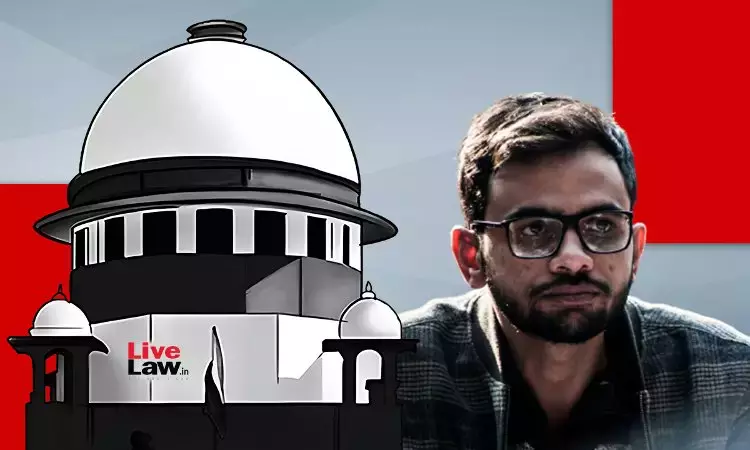Supreme Court To Hear Umar Khalid's Bail Plea Along With His Petition Challenging UAPA Provisions On Nov 22
Awstika Das
31 Oct 2023 6:36 PM IST

Next Story
31 Oct 2023 6:36 PM IST
The Supreme Court on Tuesday (October 31) decided to hear former JNU scholar and activist Umar Khalid's plea challenging various provisions of the Unlawful Activities (Prevention) Act, 1967, along with his pending bail application in the Delhi riots larger conspiracy case, on November 22. A bench of Justices Aniruddha Bose and Bela M Trivedi was hearing a writ petition filed by the UAPA...
